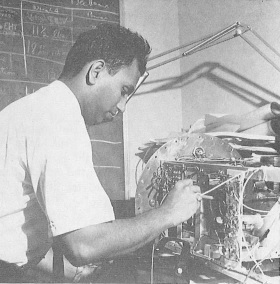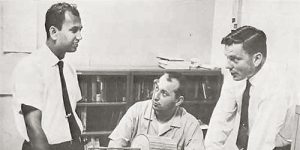In Memoriam: U.R. Rao
Pioneer of Indian Space Program Had UTD Ties
 Dr. Udupi Ramachandra (U.R.) Rao
Dr. Udupi Ramachandra (U.R.) Rao
Dr. Udupi Ramachandra (U.R.) Rao, a pioneer of the Indian space program and former chairman of the Indian Space Research Organisation, passed away July 24 at the age of 85.
Rao was a visiting assistant professor at UT Dallas’ predecessor institution, the Southwest Center for Advanced Studies. He arrived in 1963 to work in the Division of Atmospheric and Space Sciences.
“In the early years, the Center produced fundamental contributions in observations of the Earth’s upper atmosphere and the cosmic ray environment that surrounds the planet,” said Dr. Rod Heelis, director of the William B. Hanson Center for Space Sciences and Distinguished Chair in Natural Sciences and Mathematics. “From 1962 to 1972, the ‘cosmic ray group’ attracted world leaders in the field, one of which was Dr. Rao.”
Rao returned to his homeland in 1966 to become a leading figure in the development of space sciences in India, eventually becoming chairman of the ISRO, India’s NASA-equivalent organization, from 1984 to 1994.
“Rao guided a space-borne launch and observational capability that now places India at the forefront of the field,” Heelis said. “Throughout his career, he maintained international links throughout the community, and our continued connection with him and his work leaves us deeply saddened by his passing.”
Perhaps most notably, Rao led the team that launched India’s first satellite, Aryabhatta, in 1975. Rao assembled a team of young scientists that carried the Aryabhatta project from conception to launch in just three years.
“Dr. Rao is internationally recognized for his personal contributions and his commitment to the development of young scientists that continue his legacy,” Heelis said.
–Stephen Fontenot
 From left: U. R. Rao, Robert Bukata and William C. Bartley of the Graduate Research Center of the Southwest / Southwest Center for Advanced Studies.
From left: U. R. Rao, Robert Bukata and William C. Bartley of the Graduate Research Center of the Southwest / Southwest Center for Advanced Studies.



